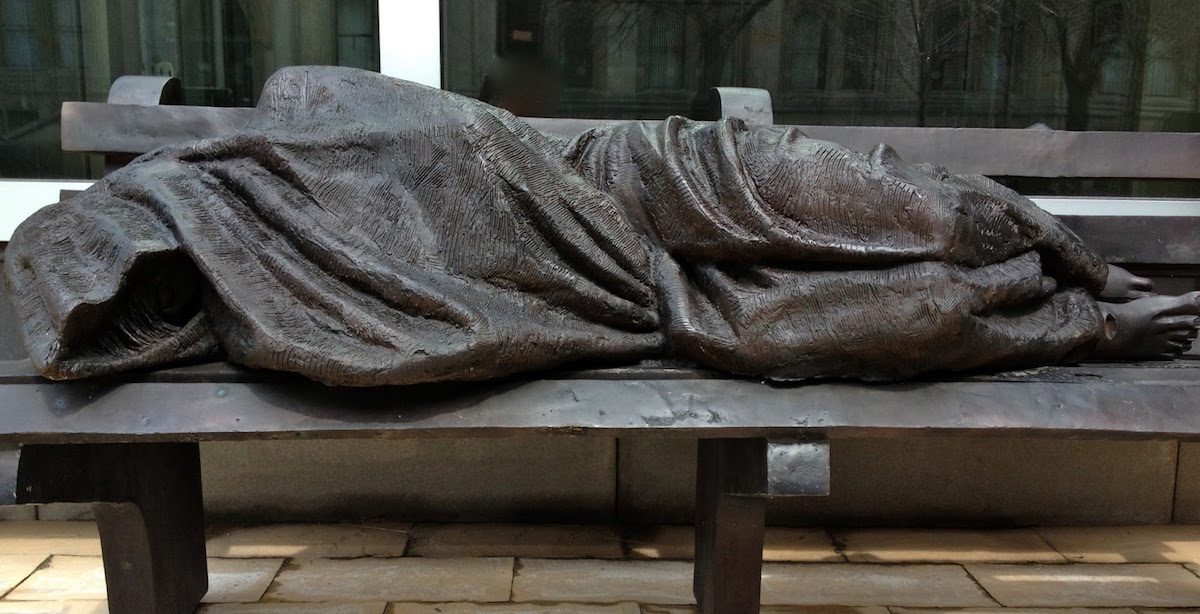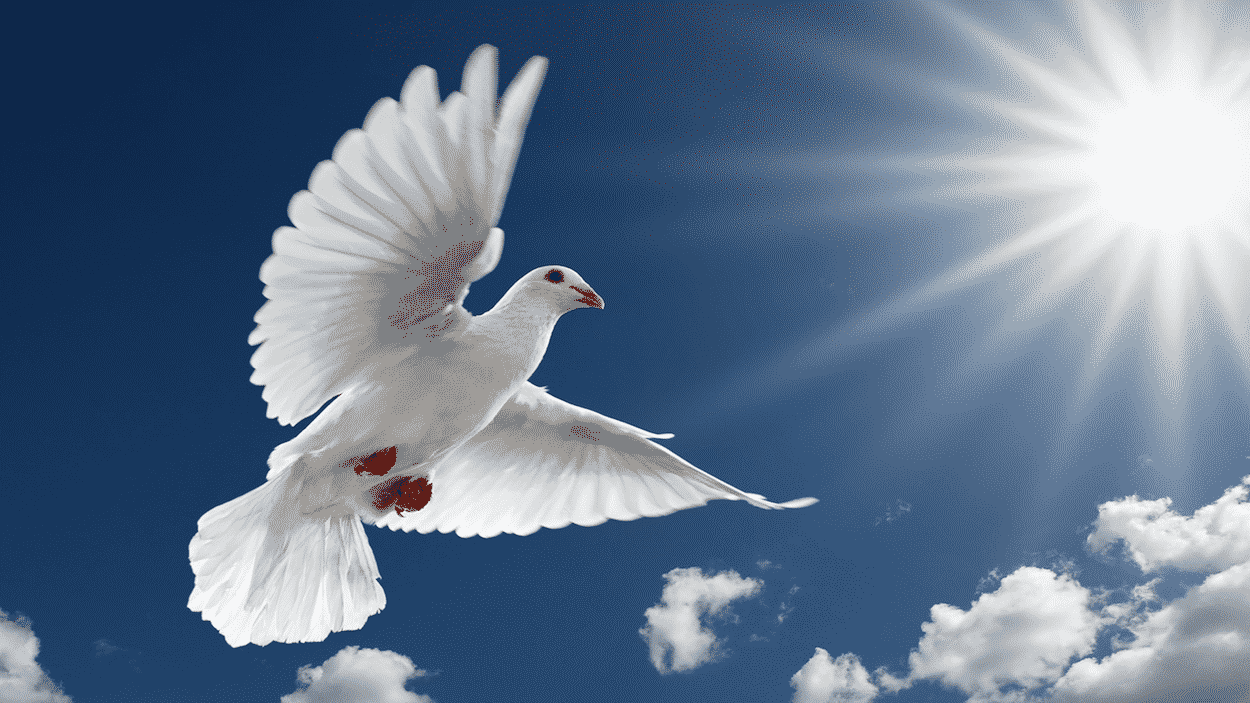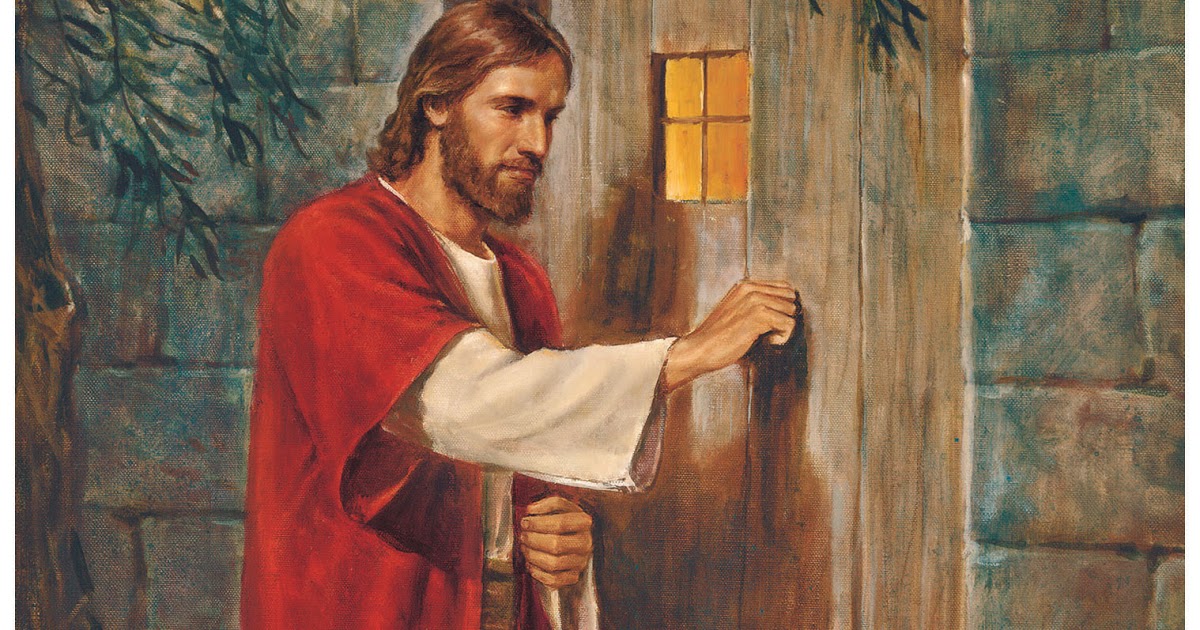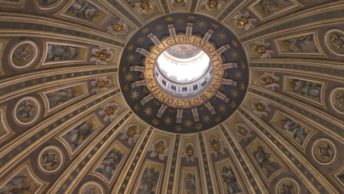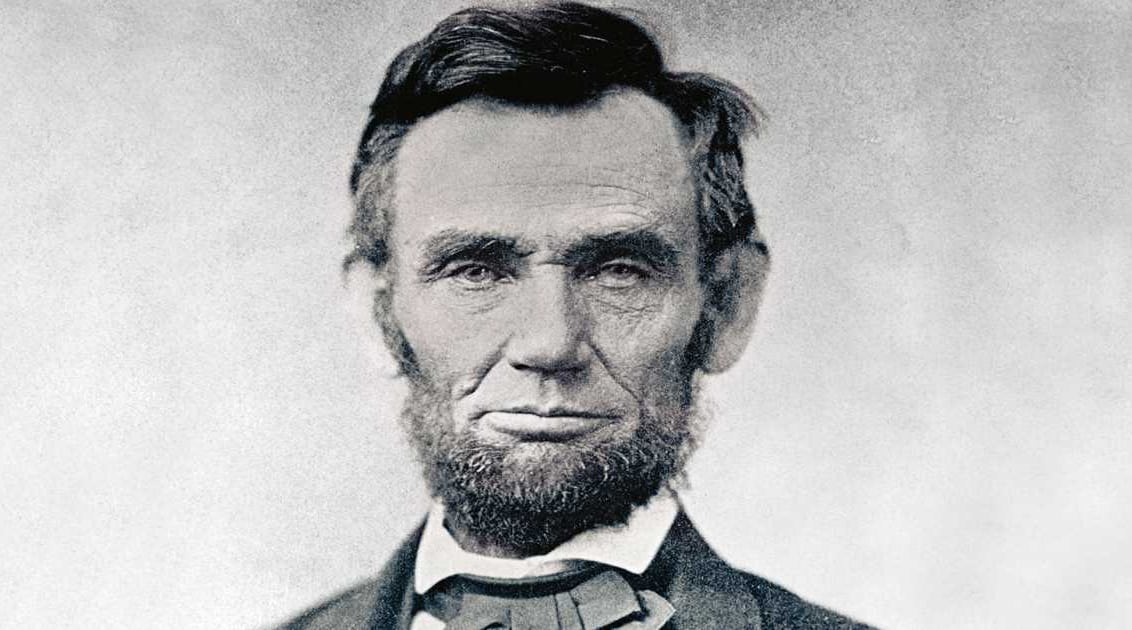A question is asked of us: Are we are brother’s keeper? In Detroit, perhaps no priest epitomized this more than the late Msgr. Clement Kern. From 1947-77, he was pastor at Most Holy Trinity parish in the Corktown area of downtown. According to Fr. Lawrence Ventline (Story Hungry: Roots, Relationships, and Reflections, pp. 34):
Clem Kern believed in God and the poor. He built up the dignity of a fragile people. When no one else seemed to be there, Clem Kern took up the cause. He was an ordinary man with an extraordinary ministry. He was financially poor but spiritually rich. He was empty enough of this world’s ways to fill up on the ideals of the Gospel challenge. When Monsignor Kern was asked why he did what he did, he’d reply: ‘The people asked me.’
Now the best starting place for ministry is our own poverty. While some of us have been spared economic poverty, not one of us has escaped spiritual deprivation. And given that our life-long vocation is to seek the Lord’s will for our lives, we should never be surprised that God leads us through the brokenness of the Body of Christ so that we might find our way.
During one cold winter, I volunteered on Friday mornings at a Franciscan-run warming center in downtown Detroit. At 3:45 a.m., I rose, poured a cup of coffee, and began my journey down a blustery Interstate-75. With rush-hour traffic yet to form, it was a special time for prayer, quiet, and reflection.
The warming center proclaimed itself as an imitation of the Good Shepherd: comforting the lost, feeding the hungry, clothing the naked, sheltering the homeless, and welcoming the stranger. At the time, the center rested in the shadow of the chancery building, had a staff of paid social workers, pastoral ministers, and volunteers. Each day, the center opened itself to countless homeless, many who suffered from mental illness and addiction to drugs and alcohol. Their faces bore the marks of suffering. Their skin was prematurely aged as a result of exposure to harsh weather. They slept in alleys and over manhole covers. Their teeth had rotted away. In short, their eyes had witnessed the realities of living on the fringe of a society that refused to acknowledge their presence let alone their names.
As a volunteer, I was counted upon to help “administer” the tasks of providing nourishment, warmth, and clothing. But I was also encouraged to listen to the stories of the homeless. However, prior to becoming a “seasoned” volunteer, there was that “first” morning. After receiving a welcome from the staff, I was told to assemble “hygiene kits” for the homeless, who had already begun gathering. Each kit included a toothbrush, toothpaste, shaver, skin lotion, and a fresh pair of socks. If we were fortunate, on a case-by-case basis, a hat or gloves might also be possible.
While working, I remember thinking: “There but for the grace of God go I.” For until that first morning, it was though the homeless existed through a pane of glass. But in an instant, everything changed. God had called me to “come and see” His sons and daughters! He wanted me to meet my brothers and sisters.
One morning, I remember walking to an area where coffee and food was being distributed. On one of the walls, a large Franciscan crucifix cried out: “Make me a channel of your peace; may you be a vessel for others.” And at that moment, I noticed a homeless man seated at one of the tables. With trusting resolve, I approached him. After introducing myself, I asked if I could bring him another cup of coffee and donut. Somewhat surprised, he said yes. As I gazed into his eyes, I wondered how often he experienced others doing for him, or was his life a constant fending for himself? Quickly, I contrasted this to my own life experience, where others frequently act on my behalf. At the end of our conversation, he thanked me so genuinely that I was left to ponder just what this unique moment of God’s grace meant for me.
When asked why he did what he did, Msgr. Kern replied: “The people asked me.” The same goes for you and me. Why do we do for others? Because we are our brother’s keeper.

